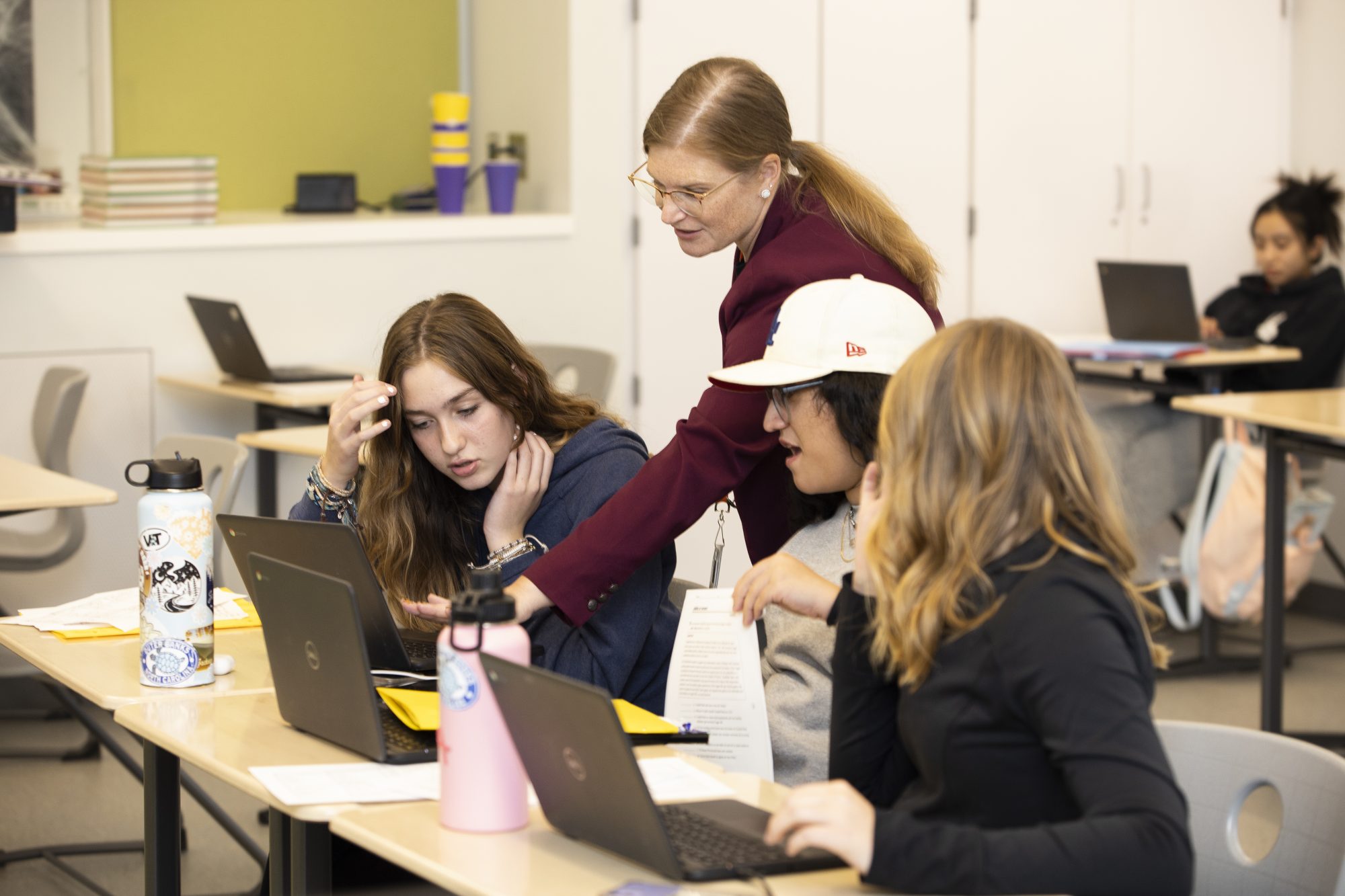SAUGUS — The two courses offered to students this fall as part of the town’s new early college program represent the beginning of what school officials believe will grow into a staple of the educational offerings in Saugus.
The early college program is operated in conjunction with North Shore Community College as a result of a grant received from Governor Charlie Baker’s administration earlier this year. The town later received a $500,000 grant from the state to further expand its early college programming, which offers college-level courses to high school students. Currently, students take speech and understanding higher education courses.
Director of Early College Jackie Corbaci said the grants have really allowed the town to use the first year of the program as a sort of pilot, with two courses this fall and three in the spring, while spending the year brainstorming ways to use the second batch of funds on expanding the program.
“It works really well together because we’re getting these students into classes. They’re 10th, 11th, and 12th graders and getting families to know more about the program, while we’re sort of starting these conversations with the community around the career pathways. So that’s another piece of what’s happening this year, is really building out what’s happening with the career pathways, which pathways are we going to offer? What are the best pathways for the students, the student body, and this surrounding Saugus community? In terms of job offerings and things like that?” she said, noting that as the program expands it will offer courses that are geared towards specific career pathways for students.
The overarching goal of the program, Corbacci said, is to ensure that students are both “career and college ready” by the time they finish high school.
“There are so many benefits for students taking the classes … they’re gaining confidence, they’re building skills and speaking with professors, how to communicate effectively, and also a transferable class that they could either go to a four-year college with, or a two-year college with,” she said. “There’s a lot of skill building and then there’s just the financial component as well. And some students don’t really know if they want to go to college, and this can solidify that for them as they have a good experience in the class, get to know a professor and also seek out the support.”
Saugus Middle/High School Principal Brendon Sullivan said the program is “already a success.”
“In the space of less than a year where we’ve come is tremendous. We have kids in the [classroom] … high school students taking a college class. That’s tremendous,” he said. “And we have two classes going. So we went from nothing, to two, going to three in the spring. … I’m really excited that we’re not just talking and planning, but actually doing that is just a phenomenal thing.”
In the long run, the goal is to build the early college program up to an opportunity available to every Saugus student who wants to participate, Sullivan said. There is currently a cap on the number of students who can enroll in the courses, according to Corbaci.
“We really want this to be something that it’s not just for a couple of kids or a really small niche thing. We want this to be a core part of our school and an opportunity that all students can avail themselves of … it’s something that will really help us to get to that next level as a high school, and really help us to stand out from other area schools,” Sullivan said.
Sullivan, who took over as SMHS principal in 2021, said he sought to invest heavily in early college because programs like the one the school is building can help students develop skills that help them throughout the course of their lives, not just during their time in education.
NSCC Dean of Strategic Partnerships Adam Cutler said he believes early college programs, like the one in Saugus offer tremendous value for students and their families, in part because they can serve to relieve the financial burden that often comes with a college education.
“It’s a way to explore what college is … to understand the rigor and understand what a college syllabus looks like … so when you actually get to college, post-high school, you’ll be that much ahead of the game, ahead of your peers,” Cutler said in a telephone interview. “Second reason is it saves a lot of money. These courses are 100 percent free to the students and families … and as you might imagine, these courses are targeted towards first-generation, low-income BIPOC students, oftentimes English language learners as well. So college isn’t necessarily a normal word in a lot of these students’ families, and this is helping to make it a normal thing in their families.”
Cutler’s message was echoed by one of the students currently enrolled in the program, as Brandon Barreiros, an 11th-grade student at Saugus High School, said he has reconsidered his preconceived notions surrounding college education.
“I used to be very negative about college before, I didn’t feel like I was going to college at all, that I would just work my whole life, but I think through some classes I kind of feel more at ease with it. I don’t feel that kind of scared of college,” Barreiros said. “I thought it would be a lot harder.”
Charlie McKenna can be reached at [email protected].

